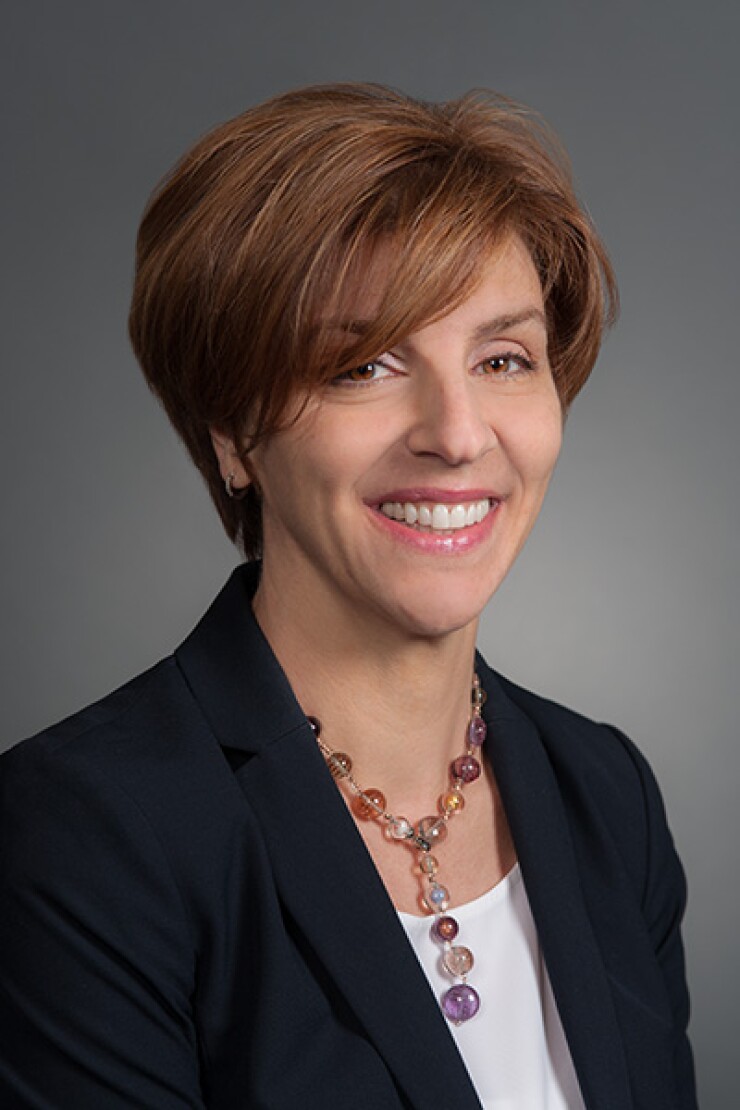- Forward look: While Salem Five didn't discuss targets, a key executive said the Massachusetts bank is open to expanding the private banking operation if it performs well over the next year.
- Expert quote: "If we prove the concept over the next year, and it is a successful endeavor … then good for us and we will move forward in the way you often do when you have a successful proof-of-concept initiative," Executive Vice President Joseph Riley said.
- Supporting data: Though institutions' thresholds differ, $5 million of assets under management is generally seen as the starting point for a private banking relationship.
A depositor-owned Massachusetts community bank that got its name from accepting deposits as small as a nickel when it was founded more than a century ago is launching a private banking practice.
The $8.4 billion-asset Salem Five Cent Savings Bank, which does business as Salem Five, has hired an experienced private banker and plans to add another in short order, according to Joseph Riley, the company's executive vice president for retail and business banking.
Riley referred to the initiative in its current, modest form as a "proof of concept," though he suggested it would likely be expanded if it performs well.

"We'll see if it takes. I have every reason to believe it should," Riley told American Banker. "If we prove the concept over the next year, and it is a successful endeavor … then good for us and we will move forward in the way you often do when you have a successful proof-of-concept initiative."
The 170-year-old Salem Five announced last week that it had hired Veronica Caira as its first private banker. Caira, who began her banking career in Rome, Italy, spent the past seven years at the $25 billion-asset Independent Bank Corp. in Rockland, Massachusetts. Independent is the holding company for Rockland Trust.
"I'm really looking forward to working alongside … the team at Salem Five," Caira said in a press release. "The bank has a great reputation in the market and together I know we can build upon that even further with the addition of private banking for the important high-net worth segment."

While Salem Five has an existing wealth management business, this will be its first foray into private banking. The difference lies in the amounts of money involved and the level of services being provided, Don Sondhelm, CEO of Sondhelm Partners, an Alexandria, Virginia-based wealth management consulting firm, told American Banker.
Institutions have different wealth thresholds, but customers with more than $5 million of assets under management typically qualify for private banking, according to Sondhelm. Wealthier clients may need help with business planning, alternative investments and generational planning. Another wrinkle is that private banking offers concierge services, where bankers assist clients with nonfinancial tasks.
"As you go up the food chain, it becomes way more sophisticated," Sondhelm said.
Banks have long been drawn to the private banking space, attracted by its wide profit margins and the prospect of building a stream of regular, nontransactional fee income.
"It's [providing] investment management services and financial planning services and other things for wealthy people where you're going to get a management fee as long as you're serving the customer," Sondhelm said. "It takes [the bank] from transactions to recurring income."
Riley said he introduced the idea of entering private banking in the fall of 2024 during a retreat for Salem Five's senior leadership team.
"We began in the fourth quarter of 2024 looking at the opportunity, and by January we were seriously beginning the preparatory process," Riley said. Salem Five hired Caira in September after a monthslong selection process.
"She has a multi-decades-long track record of business development through service," Riley said. "Because she has very loyal customers, we fully anticipate many of those customers will want to know where she is and will want to be a part of this initiative."
Riley, however, expects to find most of the initial private banking customers from within Salem Five's existing customer base. "What drove this was a realization over the last several years that while we have a number of very high-value customers, we have a tremendous cross-selling opportunity to gather greater share-of-wallet," Riley said.
"There was a compelling argument that from these very valuable customers, there was a considerable amount of business still on the table," Riley added.
Sondhelm called Salem Five's plan to use its existing customer base as the foundation for its newly launched private banking practice a wise one. At the same time, Sondhelm said any new private banking venture is going to face fierce competition. Indeed, it's likely that many Salem Five clients are already receiving outside financial advice.
"They already have their investments taken care of," Sondhelm said.
That said, when it works, private banking can be a very lucrative endeavor.
"It's a very scalable business," Sondhelm said. "Once you build the infrastructure, you can take on lots of clients with very little variable costs being added."
Salem Five plans to build its value proposition around superior service. Sales will flow from "exceptional service, where you become someone who is a trusted financial advisor to a customer," Riley said. "You've gotten to know them, You've made recommendations to them and when you've committed that you would do something, you do it exactly in accordance to what your commitment is. … When you do that, you become very valuable to individuals."
Riley said the private banking push is a corporate-wide initiative "that is going to require the full cooperation of not just all of the business lines of the bank but all the support areas" in order to succeed.
"When a private banker gets informed of a need from one of his or her clients, the private banker's role is to facilitate ... a go-right-to-the-front-of-the-line response and make it as easy for the customer as humanly possible," Riley said.





